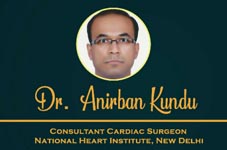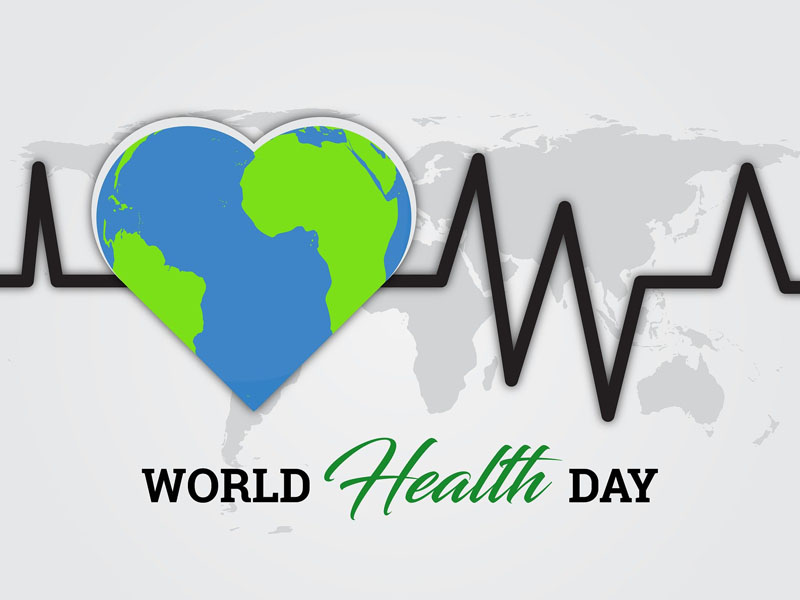On the occasion of World Heart Day, we are bombarded with a surfeit of information, videos and tips on maintaining a healthy heart. How much of these we actually retain and practise in the real world is debatable. Taking a cue from our childhood books, here is a basic primer on how to keep our ticker shipshape for years to come!
A – Activity. Do indulge in at least 150 minutes of moderate intensity activity a week or 75 minutes of vigorous intensity activity a week. It is also a good idea to spread exercise evenly over 4 to 5 days a week, or every day. Examples of moderate intensity activities are : brisk walking, heavy duty cleaning (mopping, vacuuming, scouring floors), badminton, tennis doubles, etc.
Some vigorous intensity exercises are: jogging at 9-10km/hr, basketball, soccer, squash, carrying heavy loads, speed cycling, etc.
Remember! People without sufficient physical activity have a 20-30% more risk of death from cardiovascular causes than those who are active.
B – Blood Pressure. High blood pressure (Hypertension) is known as a silent killer. It can stick around for decades without causing any obvious symptoms, all the while quietly damaging your kidneys, eyes and blood vessels without you being aware. Moreover, it is important to keep your blood pressure in normal limits as hypertension ups your risk for heart attacks or stroke (“brain attack”). But a raging controversy is, just what do we consider as “normal” BP? According to latest guidelines by the American Heart Association (with apologies for our collective fascination for all things American, these are used in the prevailing absence of Indian guidelines!), any reading equal, or above 140/90mmHg is considered hypertension, provided these are found to be persistent over repeated readings. Once hypertension is diagnosed, one has to undergo further screening for other affected organs or conditions, as over 50% of hypertensives tend to have other cardiovascular risk factors like diabetes and elevated cholesterol levels.
C – Cholesterol. Cholesterol has for long been the villain of the piece, but recent findings have shown that it’s not the red-eyed monster it was hitherto made out to be. However, that doesn’t mean that we can start stuffing ourselves with lard just yet! Blood cholesterol levels definitely are associated with increased risk of artery blockages but the crunch lies in the factors influencing blood levels of the substance. Research has shown that the majority of our blood cholesterol is produced by our own liver, while a minor proportion comes from our dietary intake. In fact, cholesterol is an important component of various hormones and vitamins. Hence any drastic cut in intake can cause more harm than good. Cholesterol levels majorly can be easily managed by dietary modifications and exercise, without having to take recourse to medicines, which may also have side-effects.
D – Diabetes. This is one villain that has long stolen the thunder from cholesterol! The scourge of diabetes mellitus has come to assume gigantic proportions, especially as it tends to target other organs like kidney, brain, eye, heart and blood vessels. The crippling effects of this disease on these organs greatly add to socioeconomic costs. In fact, the spotlight has now shifted to diabetes or sugar as the main culprit in the causation of cardiovascular disease. It has been rightly said, “Sugar and Sitting are the new tobacco!” Whether or not you are diabetic, it is imperative to do away with refined sugar, or other refined foods like refined flour (“Maida”) that cause a spike in blood sugar levels. Regular monitoring of blood sugars, medical follow up, dietary changes and lifestyle modification can go a long way to prevent or at least, delay the onset of cardiovascular disease in diabetics.
E – Eat Right Our dietary habits must include more of whole grain, unrefined foods. Fast foods, sugary colas, and excessively salty items like chips are a no-no. Our traditional grains like Bajra and Ragi (millet) have largely been supplanted by wheat. The latter, no matter the claims to the contrary, is still less fibrous and low-residue than our traditional grains. Unfortunately, convenience and glitzy marketing have consigned the above-mentioned grains to the background while wheat flour occupies centrestage. Whole grain slows the post-meal spike of sugar, allowing for a more sustained release of energy throughout the day, and less propensity to diabetes. They also relieve constipation and bloating due to their bulk-forming action, both of which wheat is notorious for causing.
F – Food Continuing the above discussion, we must also include fresh fruits and veggies as much as possible in our diet, particularly seasonal and local produce. Increased fruit and veggie intake provides vital micronutrients besides contributing to bulk formation and relieving constipation. It is also very important for weight-watchers as consumption of these leads to a feeling of fullness, thereby curbing any cravings for carbs one might have!
G – Goals While it’s important not to get cowed down by these pointers, it is also important to set oneself health goals that are easily achievable. This is especially true of those who may not be in the best of shapes. Such goals may take the form of targeting a certain weight in a certain period of time, achieving a certain level of exercise in a certain time frame. These goals should be in the form of small, achievable chunks, so that we don’t stress out ourselves in the race to get to our goals.
H – Help We should help others as much as we can in the pursuit of their health goals. Doing so gives one a great sense of purpose and fulfilment, itself important for heart health. On the flipside, we must not shy from getting help ourselves, whenever we find ourselves unequal to the goals we set. This may be as simple as enlisting a jogging partner, asking your spouse to ensure your strict adherence to a diet plan, etc.
I – Investing Time in oneself This is also important as one’s relaxed state of mind also plays a major role in heart health. This may take the form of periods of meditation, self reflection, “planned idleness,” or doing some activity that gives you joy, like gardening.
J – Joyfulness A cheerful, happy disposition goes a long way in maintaining heart health.
K – Kill Bad Habits Sitting, smoking, sedentary lifestyles are all bad habits that should be eliminated from our lives as soon as possible.
L – Love & Compassion for nature and those around us.
M – Mindfulness This is the act of being acutely conscious of the impact one’s activity has on those around us. Unfortunately, India scores low on this point. This may not directly impact heart health, but if we as a people are sensitive to the effects our public deeds have on those around us, it would go a long way in reducing overall stress in society, with its attendant effects on the heart and well-being.
N – Nuts These should be part of our diet as they are rich in Vitamin E, B6, antioxidants and micronutrients.
O – Openness About one’s feelings, negative and positive alike. This fosters a feeling of community, and not being alone. It also pays not to keep hostility all bottled up, only to later explode like a powder keg!
P – Play An important component of physical activity, playing sports and games also contributes to feeling of well-being, and promotes leadership skills, whilst imparting the previously-discussed benefits to the heart.
Q – QUIT SMOKING Something that cannot be over-emphasized!
R – Refresh One’s mind and body also need refreshment in the form of recreation or hobbies. These also help in improving concentration and focus.
S – Sleep Adequate sleep is of utmost importance, an aspect that is sadly being ignored in our always-on world. Lack of sleep leads to impaired sugar tolerance, increased carb-craving and subsequent weight-gain. Unfortunately, current trends tend to view sleep as a wasteful enterprise, as opposed to increased productivity. Even the quality of sleep has taken a beating with prolonged nighttimes exposure to LED screens.
T – Turn off all electronic gadgets at least an hour prior to bedtime to enhance the quality and quantity of sleep, besides substantially reducing stress.
U – Use your time judiciously, while avoiding excuses to skip exercise or healthy habits.
V – Visit your healthcare provider regularly for checkups.
W – Water Lots of water intake has multiple benefits: keeping your skin and cells hydrated, ensuring waste products are excreted more efficiently via the kidneys, reducing the blood viscosity and improving circulation, avoiding constipation and flatulence, etc
X – factor When your chromosomes have already decided your fate, as in those with a strong family history of heart disease, we have no other choice but to strive harder at the other mentioned points, so as to stave off the risk of our developing heart disease.
Y – Young remain young in your mind, and the heart will surely follow!
Z – Zest for life, the ultimate gift!
 |
Dr. A. Kundu, Consultant Cardiac Surgeon, National Heart Institute New Delhi |


